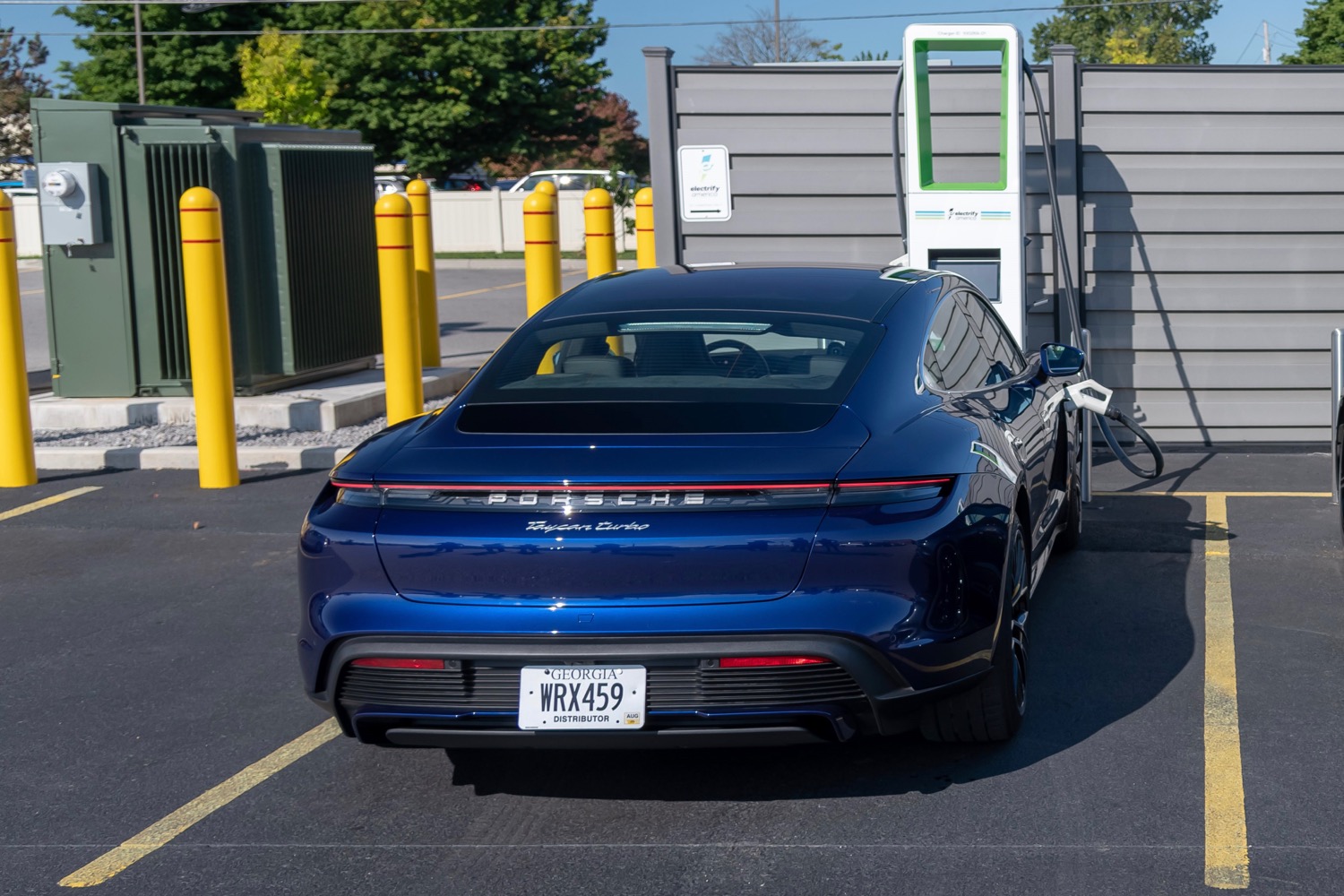 One of the headline features of the Porsche Taycan (pronounced “tie-con”) electric car is its 800-volt charging system. Porsche claims this high-power system should allow an 80% charge in just 22.5 minutes — much quicker than current systems. But that won’t matter if Taycan drivers can’t find a compatible charging station. In the United States, Electrify America is working to get those stations ready ahead of the Taycan’s launch.
One of the headline features of the Porsche Taycan (pronounced “tie-con”) electric car is its 800-volt charging system. Porsche claims this high-power system should allow an 80% charge in just 22.5 minutes — much quicker than current systems. But that won’t matter if Taycan drivers can’t find a compatible charging station. In the United States, Electrify America is working to get those stations ready ahead of the Taycan’s launch.
Electrify America has opened the first charging station for the Taycan in Bloomsburg, Pennsylvania. To test it, a Taycan was driven directly from Niagara Falls (where Porsche staged the car’s reveal) to the charging station. The car successfully charged at a maximum power level of 270 kilowatts, according to Electrify America. The organization claims that’s the highest power currently available for charging passenger cars. Eventually, cars should be able to charge at 350 kW, according to Electrify America.
It makes sense for Porsche to turn to Electrify America for charging stations. The latter was created to spend $2 billion of Porsche parent Volkswagen Group’s money over 10 years on zero-emission vehicle infrastructure, as part of the settlement for VW’s diesel-emissions cheating. Electrify America has already opened a handful of 150-kW charging stations for the Audi E-Tron, another electric car from the VW Group stable.
While Electrify America is opening more powerful charging stations in sync with the launch of new VW Group electric cars, those stations are open for electric cars from all automakers to use. Most electric cars aren’t equipped to charge at the Taycan’s high power level, though. We expect the upcoming Audi E-Tron GT to use the same charging system as the Taycan, and the availability of high-power charging stations may encourage other automakers to design compatible cars.
Charging isn’t the only thing about the Porsche Taycan that’s quick. The most powerful version will do zero to 60 mph in 2.6 seconds, according to Porsche. The Taycan was also torture tested to ensure it could deliver the same breadth of performance as Porsche’s internal-combustion cars. Porsche also crowded the dashboard with screens, including displays for both the driver and passenger. The Taycan will launch in Turbo and Turbo S guises, but Porsche plans to follow that up with less expensive variants, as well as a production version of the Mission E Cross Turismo wagon concept.
Editors' Recommendations
- Porsche’s most powerful production car is an EV
- Mercedes EV charging hubs are coming to North America by the end of the decade
- 2022 Rivian R1T first drive review: The first EV pickup sets a high bar
- Chevy will pay charging-station installation costs for 2022 Bolt EV buyers
- Here’s how Volkswagen plans to electrify America’s most popular car segment


